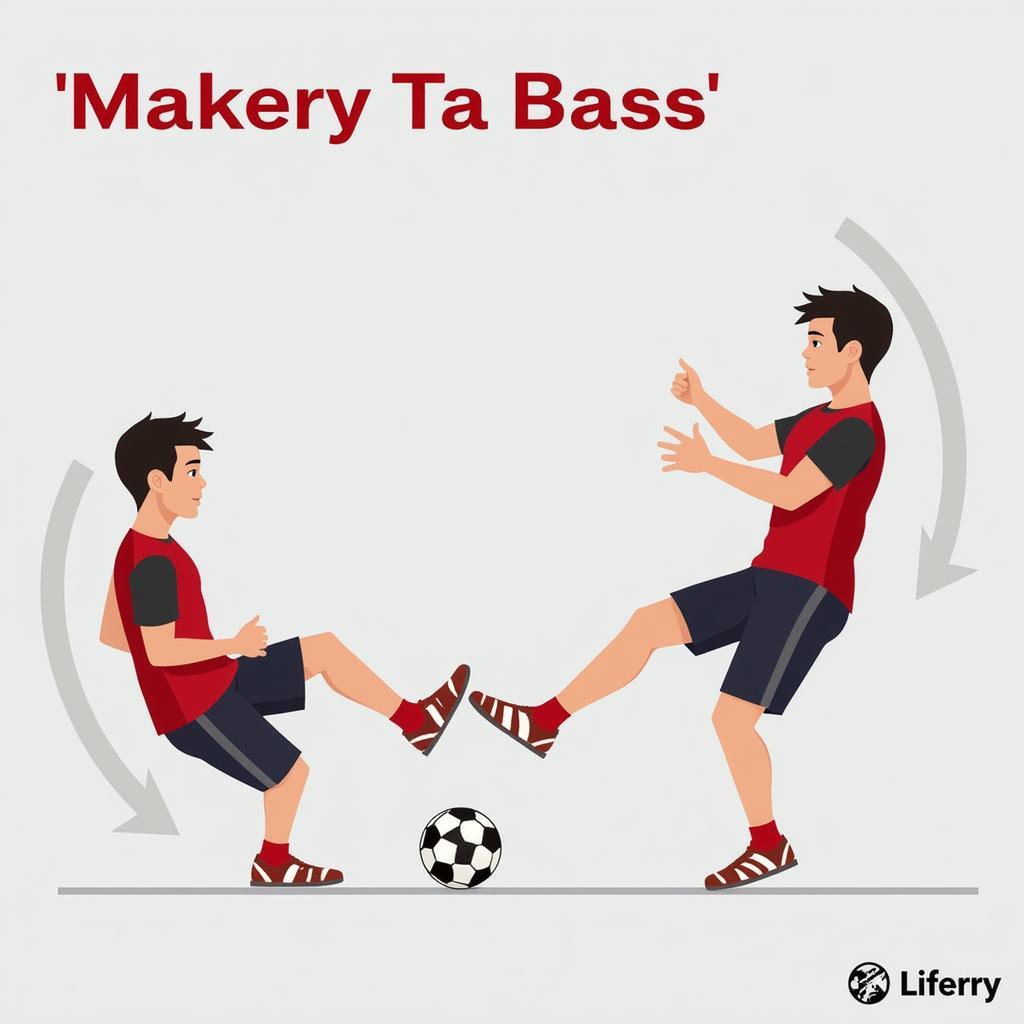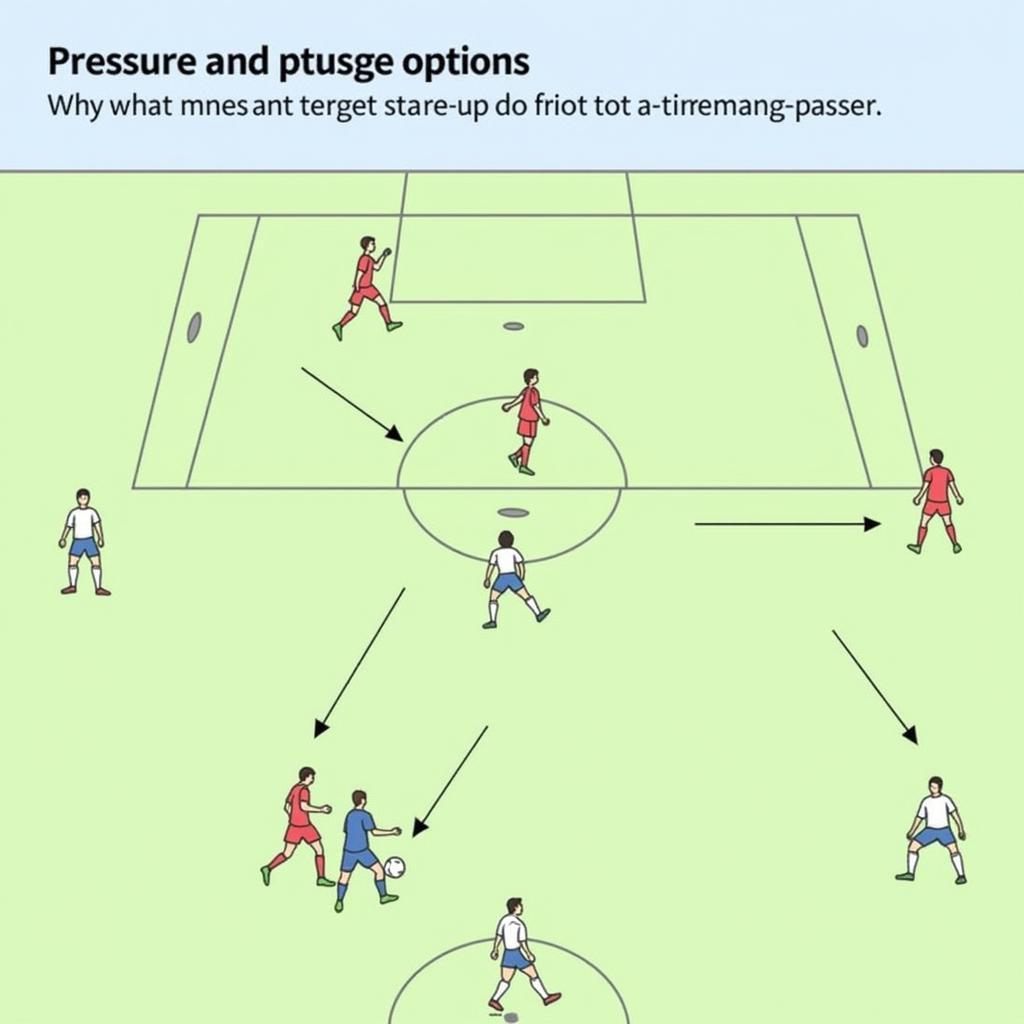Decoding the “Ball Blank Poor Passer” Phenomenon: Is it Skill or Circumstance?
November 27, 2024The phrase “Ball Blank Poor Passer” often surfaces in football discussions, particularly when analyzing a player’s performance. It suggests a disconnect between possessing the ball and effectively distributing it to teammates. But what contributes to this apparent contradiction? Is it simply a lack of skill, or are there other factors at play? This article delves into the intricacies of passing in football, exploring the reasons why a player might be labeled a “ball blank poor passer” and how they can improve their distribution game.
Understanding the “Ball Blank Poor Passer” Label
Being tagged with the “ball blank poor passer” label can be damaging to a player’s reputation. It implies a deficiency in a fundamental aspect of the game. However, the reasons behind poor passing can be complex and multifaceted. While some players may genuinely struggle with the technical aspects of passing, others might be hampered by tactical limitations, pressure from opponents, or even psychological factors.
Technical Deficiencies in Passing
Sometimes, the issue is purely technical. A player might lack the proper technique for striking the ball, resulting in inaccurate or poorly weighted passes. This can manifest as passes that are too strong, too weak, or simply off-target. Other technical shortcomings include poor body positioning, incorrect foot placement, and a lack of follow-through.
 Poor Passing Technique in Football
Poor Passing Technique in Football
Tactical and Situational Factors Affecting Passing
Even players with excellent technical skills can appear to be poor passers if they are placed in unfavorable tactical situations. For instance, a player constantly under pressure from the opposition will have less time and space to execute accurate passes. Similarly, a team’s overall tactical approach can influence a player’s passing effectiveness. If a team plays a very direct, long-ball style of football, the emphasis on short, intricate passing will be reduced.
 Tactical Pressure Affecting Passing Accuracy
Tactical Pressure Affecting Passing Accuracy
Psychological Impact on Passing Performance
Pressure, anxiety, and a lack of confidence can significantly impact a player’s passing ability. A player who is nervous or hesitant might rush their passes, leading to inaccuracies. Furthermore, a player who has made a few poor passes in a row might develop a mental block, further exacerbating the issue. This psychological aspect is often overlooked but can be a major contributor to the “ball blank poor passer” phenomenon.
Improving Passing Skills: From “Blank” to Brilliant
Thankfully, passing is a skill that can be improved with dedicated training and practice. Focusing on the fundamentals, such as proper technique, body positioning, and ball striking, is crucial. Regular practice sessions can help players develop muscle memory and improve their accuracy and consistency.
Targeted Drills for Enhanced Passing
Specific drills, such as passing against a wall or with a partner, can be highly effective in honing passing skills. These drills allow players to practice different types of passes, including short passes, long passes, and through balls. Working on first touch control is also essential as it allows for quicker and more accurate distribution.
Conclusion
The label “ball blank poor passer” is often a simplification of a complex issue. While technical ability is undoubtedly important, tactical awareness, psychological factors, and situational context all play a role in a player’s passing effectiveness. By understanding these contributing factors and dedicating themselves to focused training, players can overcome passing difficulties and transform into effective distributors of the ball. Remember, consistent practice and a positive mindset are key to unlocking passing potential.
FAQ
-
What does “ball blank poor passer” mean? It refers to a player who has possession of the ball but struggles to pass it accurately or effectively to teammates.
-
What are the main causes of poor passing? Technical deficiencies, tactical limitations, pressure, and psychological factors can all contribute to poor passing.
-
Can passing be improved? Yes, passing is a skill that can be significantly improved through dedicated training and practice.
-
What are some effective passing drills? Passing against a wall, passing with a partner, and working on first touch control are all useful drills.
-
How does psychology affect passing? Pressure, anxiety, and lack of confidence can negatively impact a player’s passing accuracy and decision-making.
-
How important is tactical awareness for passing? Tactical awareness helps players anticipate movements and make better passing decisions under pressure.
-
How can I improve my first touch to enhance my passing? Practicing receiving the ball in different ways and controlling it quickly can greatly improve your first touch and subsequent passing ability.
Common Situations and Questions
- Scenario: A young player consistently misplaces passes during games despite showing good technique in training. Question: How can I help a young player overcome anxiety and improve their passing performance during matches?
Further Exploration
For more insights on football skills and training, check out our other articles on [suggested article link 1 – passing drills] and [suggested article link 2 – overcoming mental blocks in sports].
Contact us for support: Phone: 0915117113, Email: [email protected] or visit us at: To 3 Kp Binh An, Phu Thuong, Vietnam, Binh Phuoc 830000, Vietnam. We have a 24/7 customer service team.